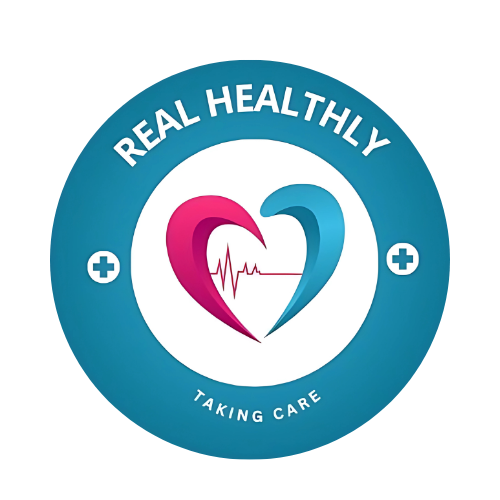Definition of Wellness:
“If you have your health, you have everything.” This old statement has been around for a long time because it is true. Health in all its complexities is a necessary foundation for a life well lived. So how do we define health and wellness? One definition comes from the World Health Organization: “Health is a state of complete physical, mental and social well-being and not merely the absence of disease and infirmity.
This statement recognizes that to be healthy, a person must be more than free of physical problems. He or she must also pay attention to feelings, values and relationships. In other words, when a healthy person reaches a state of wellness, he or she has demonstrated health in physical, emotional, social, intellectual and spiritual life. Thus wellness is an individual pursuit. It is the individual’s responsibility of gaining wellness associated with his own choices, behaviors and lifestyles, influenced by the physical, social and cultural environments in which he lives.
The National Institute of Wellness considers wellness to be “an active process through which people become aware of, and make choices toward, a more successful existence.”
Dimensions of Wellness:
As the understanding of wellness began to shift from programs and circumstances that help to alleviate illness or increase health risks, wellness dimensions have been brought to limelight and wellness is being related to quality of life and life of satisfaction.
Physical Dimensions of Wellness:
Beyond the dollars and cents of health care, wellness is the responsibility of individuals and their personal choices. Wellness starts with a focus on preventive care and identifying risk factors rather than waiting to treat illness after it occurs. One of the best ways to practice preventive care is through regular exercise but anyone not normally active should consult his or her doctor before beginning any exercise program . A good physical workout helps minimize frustrations and stress and the importance of exercise in improving heart function, lowering blood pressure, and controlling weight loss is well established.
Another ingredient in healthy lifestyle is the proper fuel to keep the human body running like any other piece of machinery. That fuel comes directly from the foods you eat. Proper nutrition is the fundamental to every aspect of physical health. The best nutritional program contains a variety foods that offer proteins, carbohydrates, fiber, fruits and vegetables and healthy fats.
Sleep can also attribute an important aspect in wellness. Sleep helps the brain commit information to memory and can lead to insights and creative problem solving after a restful night’s sleep. Scientists continue to study the importance of rapid eye movement (REM) sleep. New studies are also looking at the connection between sleep deprivation and weight gain. Health can also be affected by too little sleep when it negatively affects relationship with family and friends and creates problems with job performance.
Emotional Dimensions of Wellness:
In the modern time, humans are routinely confronted with modern stress which can cause the fight-or-flight response. Fear and anxiety are important survival mechanisms. In a modern stress-filled world, they are triggered inappropriately. People in all walks of life complain about their daily stress.
Stress has been described as the response of the body to a demand that prompts a needed physical change to meet it. During a stress response, blood flow to the organs and digestion is inhibited so that the arms and legs can work at their greatest capacity.
The ability to deal with stress is important to overall health and wellness, because over time chronic stress can lead to physical and emotional illness. Stress related disorders include migraine headaches, allergies, ulcers, hypertension, obesity, asthma, anxiety, insomnia, eating disorders and drug use. Fear, anxiety, excitement, passion, guilt and remorse are feelings associated with stress.
Relaxation is the opposite of stress and is important tool in relieving stress. There are many ways to relax such as – reading, playing a game, taking a hot bath, meditating or participating in activities with a spiritual component such as yoga, Tai chi, prayer and visualization or guided imagery.
The relaxation technique of meditation has been shown to have a positive effect on stress and wellness. When people meditate, their bodies’ oxygen consumption drops along with their expiration of carbon-di-oxide. Meditation can be practiced daily to get a positive effect on health and wellness.
Social Dimensions of Wellness:
While surgery, other medical procedures and meditation are important to health, other equally important ingredients for wellness are the ability to connect with others and pursue activities and relationships that add joy to life. This dimension of wellness includes finding meaningful and satisfying work. There is clear evidence that several kinds of social support have a strong impact on health and wellness.
Many people face their biggest problems – problems that engage their defense mechanisms – in spouses, coworkers, children, roommates, friends and neighbors. The nature of someone’s social contacts, the abilities to listen and be emphatic, and the willingness to help others all add to an overall personal sense of wellness. Success in social relationships is an important part of this aspect of health.
Not surprisingly, the quality of relationships is the key ingredients; a healthy interaction can add to wellness, while negative relationships such as a bitter marriage or draining friendship can be as harmful as a physical illness. For example, studies show that women with breast cancer who were involved in an intimate and supportive relationship had more natural killer cells ( cells that destroy virus-laden cells) than women did not have close relationships with family, friends, or caregivers.
Intellectual Dimensions of Wellness:
In an increasingly sedentary world, it may seem that the mind and thinking are the most dependable coping resource for modern life. A book, lecture, sermon, or artistic pursuit may provide refuge from the world. New ideas and new skills can enhance an individual’s life and lead to healthy life. The ability to recognize the nature of personal feelings, interpret their significance, and share those feelings with others is an asset that promotes mental health and physical wellness.
Spiritual dimensions of Wellness:
The experiences that lead to spiritual growth and the certainty of religious beliefs are an important aspect of individual wellness. Whether those beliefs are part of a mainstream religion or developed through individual events and challenges, the presence of a spiritual focus can lead to a deep sense of personal worth and satisfaction and in that way contribute to wellness.
Studies show that people with an active religious life or strong religious beliefs may live longer and happier, and that religion can reduce anxiety and lower blood pressure. By reinforcing positive emotions, religious beliefs also stimulate healthy responses and encourage better health habits such as avoiding alcohol and tobacco. Religious communities can create several layers of support: emotional support linked to outright assistance as well as more subtle but equally powerful assistance through prayer and fellowship.
Findings from the Howard University College of Medicine noted that a greater proportion of African Americans and Hispanic Americans used prayer for health reasons. Those same groups were less likely to use other nontraditional spiritual practices such as meditation or tai chai when dealing with health issues.
Conclusion:
The pursuit of wellness, like any important goal, needs to be carried out with wisdom and balance. The road to better health is paved with the myriad small decisions made every day. Those who take supplements, avoid traditional medicine or consume tobacco, alcohol, drugs must deal with health effects of those decisions. Information is power and can help anyone take control of their health. Take time to look through the basic information contained in this article about the wellness and how you can attain the wellness. It can be the first step toward a life of wellness.


3 thoughts on “Definition of Wellness: Types of Wellness and How to Attain Wellness”